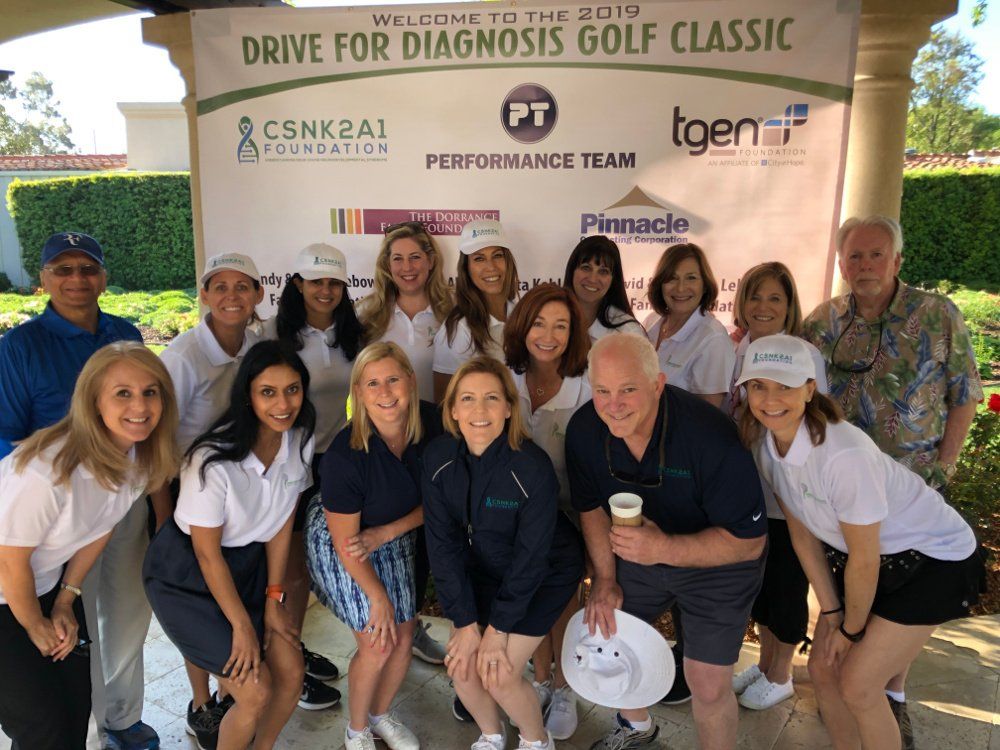FORE! Reflections from our Drive for Diagnosis Golf Classic

Golfers enjoyed a morning massage from Be Mobile Massage , breakfast burritos from Low Key Burritos , a very competitive chipping contest and swag from a pop-up Titleist / Footjoy shop. On course, Mike’s Hard Lemonade stand and Jet 60 ’s margarita machine together with Jersey Mike’s Subs kept our golfers happy and satiated. No one had a hole in one but the field was quite competitive and posted some low scores. We closed the evening enjoying Wente wines, some heavy appetizers, awards presentation and closing remarks. Mellisa and the Charity Angels helped us raise over $62,000 on the day of the golf tournament. Our first fundraising event was a huge success. We raised $284,603 .
We are grateful to our Co-Chairs Jennifer Sills and Michael Kaplan, Jr. for their leadership. Our shining stars, our golf committee, worked tirelessly on this event. Thank you to Liz Kaplan, J. Michael Grossman, Joey Behrstock, Mike Grossman, and Avisha Patel for your dedication, support and hard work.
The event wouldn’t have been possible without our Volunteers! Volunteers make the world go round! Some of our volunteers even flew in from San Francisco to help make the golf classic a huge success. A special thank you to Avisha Patel, Catherine Landers, Cindy Cooney, Denise Grossman, Ellen Rann, Gen Garcia, Jasper Sills, Jenna Rosenbloom, Jennifer Bravo, Katie Grossman, Lee Sandusky, Michelle Meyerhoff, Mona Pine, Susan McHugh, Teri Handelman, Tracy Phelps and Venessa Montanez .
Thank you to our Title Sponsor , Performance Team , for leading the way to a record-breaking fundraiser. We are incredibly grateful to our major sponsors for their support and generosity: The Dorrance Family Foundation , Allen & Anita Kohl Charitable Foundation, David & Amanda Lebowitz Family Foundation, Andy & Ashley Lebowitz Family Foundation, Pinnacle Contracting Corporation , The Karsh Family Foundation and Joan & Charlie Davis .
Funds raised from this event will go to support CSNK2A1 Foundation’s mission and to building a CSNK2A1 Foundation Research Program at TGen.
This tournament provided an incredible opportunity to bring awareness to individuals who have never heard of Okur-Chung Neurodevelopmental Syndrome and to introduce our golfers to the groundbreaking work TGen Foundation is doing in the field of genomic research.
With our donors’ support, we are turning Hope Into Action . Stay tuned for details about our next tournament.
